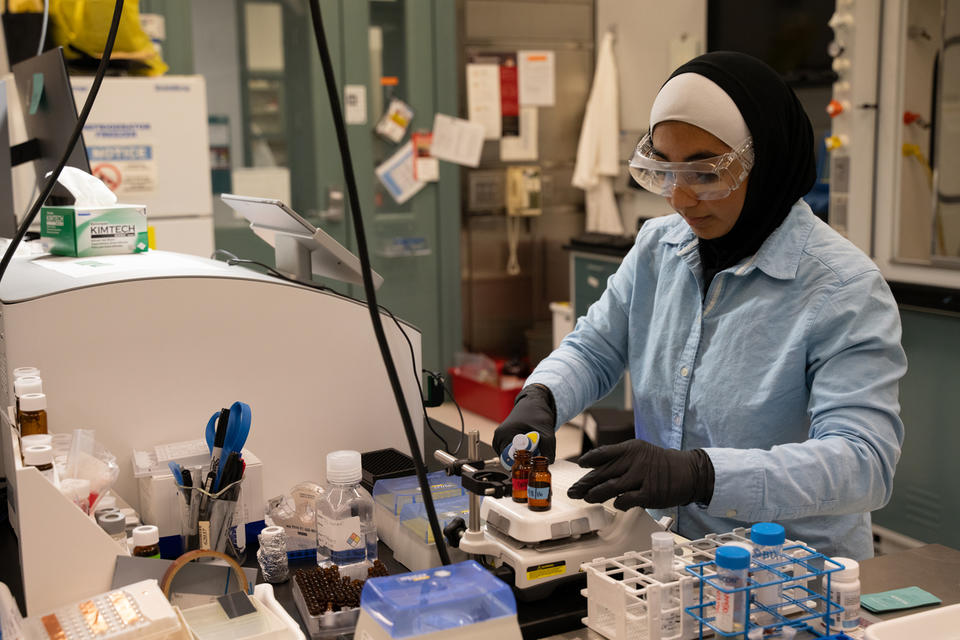Spotlight: SURF Student Zainab Altamimi Spends Her Summer Researching the Capsules and Tablets in 3D Drug Printing

From antibiotics to insulin, there have been shortages of many lifesaving drugs in recent years, requiring doctors and patients to adapt treatment plans.
But shortages could potentially be minimized in the future if your doctor’s office or pharmacy could print the drugs you need right in your community on a printer.
But those personalized medicines must be made safely with accurate measurements, and that’s where NIST comes in.
NIST intern Zainab Altamimi is spending her summer as a part of NIST’s Summer Undergraduate Research Fellowship (SURF) program researching different material options for the tablet and capsule portion of pills, which hold the medicine the patient takes.
She’s using a specialized instrument — known as a scanning electron microscope — to analyze the structure of different materials for medical tablets so she can evaluate their chemistry. The goal is to identify possible options for the outer shells of these tablets that will be safe and effective for patients.
Zainab, a rising senior at Gannon University in Erie, Pennsylvania, is passionate about biomedical engineering.
“Before I even went to college, I knew I wanted to go into biomedical engineering,” she says. “There’s a lot you can do. I love that the work is a little more hands-on. It can be a little more mechanical yet includes more science than other engineering disciplines.”
Zainab is one of more than 150 college students spending their summer interning at NIST’s various campuses as part of our SURF program.
Follow us on social media for more like this from all across NIST!

